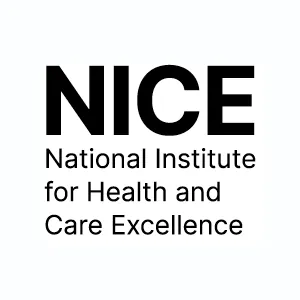
Shocking Prescription Disparities: Women, Seniors, and Black Patients Overlooked for Life-Saving Diabetes Treatments
2025-08-21
Author: Siti
New Guidelines Aim to Bridge the Gap
In an urgent move to tackle health inequalities, the National Institute for Health and Clinical Excellence (NICE) has released updated guidelines that promote the use of SGLT-2 inhibitors—a key medication for managing type 2 diabetes. This initiative seeks to rectify alarming disparities in prescription rates observed in England.
Staggering Findings from Recent Analysis
A comprehensive analysis by NICE, examining records of nearly 590,000 patients, uncovered shocking disparities in the prescription of SGLT-2 inhibitors, which not only lower blood sugar levels but also protect heart and kidney health. The study highlighted that women, older adults, and Black or Black British individuals are significantly less likely to receive these essential medications.
Only about 20% of those with atherosclerotic cardiovascular disease (ASCVD) were prescribed SGLT-2 inhibitors. Age proved to play a crucial role, with a mere 13% of patients aged 80-89 receiving prescriptions compared to 32% of those aged 50-59. Gender disparities were stark; 35% of men received prescriptions versus just 23% of women among patients with heart failure.
Why Are These Disparities Happening?
The reasons behind this inequity are multifaceted. For older individuals, concerns over potential medication interactions may hinder prescriptions. Women’s lower rates can often be tied to risks like urinary tract infections (UTIs) and pregnancy issues. Furthermore, Black or Black British patients with ASCVD face a staggering 22% lower likelihood of receiving these prescriptions, especially in deprived areas.
Crucial Benefits Await
The updated NICE guidelines now recommend SGLT-2 inhibitors as a first-line treatment for all diabetes patients—not just those with cardiovascular issues. This change is hoped to increase awareness among healthcare professionals and improve prescription rates across all demographics. Dr. Waqaar Shah, a GP and committee chair for the guidelines, emphasizes the urgent need for a significant uptick in SGLT-2 usage. Imagine the health benefits if perfect uptake were achieved!
Diabetes: A Burden on Our Health System
Diabetes presents a staggering financial burden on the NHS, costing an eye-watering £1 million every hour, accounting for approximately 10% of the entire health budget. With diabetes leading to a weekly average of over 930 strokes and 660 heart attacks in the UK, addressing prescription gaps is critical to alleviating this crisis.
Understanding SGLT-2 Inhibitors
These powerful medications help patients manage their diabetes by facilitating the kidneys’ excretion of excess sugar. They have been proven to reduce the risks for heart failure and other serious conditions. However, while beneficial, their uptake remains frustratingly low, particularly among high-risk patients.
Targeting Inequality and Enhancing Prescriptions
The data illustrates a troubling trend. For instance, 32% of patients aged 50-59 with ASCVD currently have a prescription, but this figure plummets to only 13% for those aged 80-89. This pattern is similarly observed across genders, with men almost always more likely to receive necessary treatments.
Among ethnic groups, only 16% of Black or Black British patients at high risk received prescriptions, compared to 21% of their White counterparts.
Innovative Solutions Required
Experts urge healthcare providers to adopt innovative approaches to ensure equal access to these life-saving medications. Dr. Soon Song of Sheffield Teaching Hospitals highlights the need to engage 'seldom heard' groups who tend to visit healthcare providers less frequently.
A Call to Action
NICE’s committee is demanding further research to delve deep into these prescription inequalities, aiming to generate actionable insights that will help future recommendations. The recent guideline update serves as a hopeful catalyst to bridge these glaring gaps and prevent serious health complications for underserved populations.
As Dr. Mohan points out, ensuring appropriate training for healthcare professionals is vital to improving these statistics. Let’s not stand idly by while lives are at stake—let's work towards equitable health for everyone!


 Brasil (PT)
Brasil (PT)
 Canada (EN)
Canada (EN)
 Chile (ES)
Chile (ES)
 Česko (CS)
Česko (CS)
 대한민국 (KO)
대한민국 (KO)
 España (ES)
España (ES)
 France (FR)
France (FR)
 Hong Kong (EN)
Hong Kong (EN)
 Italia (IT)
Italia (IT)
 日本 (JA)
日本 (JA)
 Magyarország (HU)
Magyarország (HU)
 Norge (NO)
Norge (NO)
 Polska (PL)
Polska (PL)
 Schweiz (DE)
Schweiz (DE)
 Singapore (EN)
Singapore (EN)
 Sverige (SV)
Sverige (SV)
 Suomi (FI)
Suomi (FI)
 Türkiye (TR)
Türkiye (TR)
 الإمارات العربية المتحدة (AR)
الإمارات العربية المتحدة (AR)